Internet
World Occupational Therapy Day: Celebrating OT's Role in Empowering Lives | Tenura
On October 27th, we celebrate World Occupational Therapy Day, a day dedicated to recognising the remarkable contributions of occupational therapists across the globe. Occupational therapy plays an important role in improving the lives of individuals by promoting independence, improving the quality of life, and helping people engage in meaningful daily activities. From children needing developmental support to elderly individuals seeking to maintain independence, OTs tailor their approach to meet each person's unique needs. At Tenura, we proudly support the OT community by providing innovative daily living aids that help therapists and their clients succeed.
What is Occupational Therapy?
Occupational therapy is a client-centred profession that enables individuals to participate in everyday tasks that are important to them. Whether helping a child learn fine motor skills for school, aiding an adult in recovering from injury or supporting seniors in maintaining their autonomy at home, OTs develop personalised strategies based on each individual's circumstances. The holistic approach of OT emphasises performing tasks and enhancing the meaning and satisfaction derived from engaging in these activities, promoting a greater sense of purpose and fulfilment.
The Impact of Occupational Therapy
World Occupational Therapy Day reminds us of occupational therapy's profound impact on individuals who face physical, emotional, or cognitive challenges. For many, the simple ability to carry out daily activities can be life-changing. Occupational therapists work closely with clients to set personalised goals, whether regaining the ability to cook after an injury or maintaining mobility in the face of ageing. Through tailored care plans, OTs help individuals take control of their lives and navigate their unique challenges. Research has shown that occupational therapy significantly enhances life satisfaction and independence, focusing on assisting individuals to participate in meaningful activities that bring them joy and self-worth.
Celebrating Occupational Therapy Day
The celebration of World Occupational Therapy Day is an opportunity to raise awareness and honour the achievements of occupational therapists and the individuals they help. Many communities organise events, workshops, and seminars to promote the profession and its impact. Social media campaigns allow people to share their stories and experiences with occupational therapy, using hashtags like #WorldOTDay to spread awareness and celebrate the profession's impact. You can also support occupational therapy initiatives by getting involved in your community, participating in local events, or advocating for better access to OT services.

How Tenura Supports Occupational Therapy
At Tenura, we see firsthand the transformative power of occupational therapy. Take the story of John, for example. After suffering a severe injury, John struggled with basic tasks like dressing and cooking. With the guidance of his occupational therapist and the help of Tenura's daily living aids, John regained his independence and confidence. Our adaptive products, including grip aids and non-slip mats, played a crucial role in helping him recover and manage everyday tasks more effectively. Similarly, Emily, a young girl with developmental challenges, made remarkable progress thanks to her occupational therapist. Using sensory products from Tenura, Emily improved her motor skills, making participating in classroom activities easier and boosting her confidence.
Tenura’s Role in Supporting OTs and Their Clients
At Tenura, we understand occupational therapists' essential role in supporting their clients' progress. That's why we're committed to providing products that assist in the rehabilitation and daily living of individuals who face mobility and dexterity challenges. Our adaptive tools, such as our grip aids and non-slip products, are designed to support individuals in performing daily tasks more efficiently and confidently. Tenura's products align with occupational therapy goals by promoting independence and helping people achieve greater control over their daily activities, whether holding utensils, gripping surfaces or carrying out self-care routines.
Customised Solutions for Unique Needs
Occupational therapy is not a one-size-fits-all approach, nor are Tenura's products. We collaborate with occupational therapists to ensure our aids meet the unique needs of their clients, making daily life more manageable. By incorporating therapist input, we can continuously innovate and provide practical, user-friendly tools that enhance therapy sessions and everyday use. From elderly individuals managing arthritis to children with sensory challenges, Tenura's solutions are designed to empower people of all ages and abilities.
As we celebrate World Occupational Therapy Day, let's take a moment to appreciate the incredible work of occupational therapists and the difference they make in people's lives. At Tenura, we are honoured to be part of this journey by providing practical, innovative daily living aids that support independence and improve the quality of life. Together, with the help of OTs, we can empower individuals to live their best lives.
Let's celebrate the power of occupational therapy and reflect on how we can further support the profession. Whether participating in local initiatives, sharing stories, or providing resources, World Occupational Therapy Day reminds us that with the right tools and guidance, we can help make a difference in the lives of individuals and their communities.
Join Tenura at Rehacare 2024 for live product demos, exclusive discounts, and free branded merchandise. Visit us at Booth G35/6, Hall 5!
The countdown is on! This September, Tenura is thrilled to attend the Rehacare Expo, the world's leading trade fair for rehabilitation and care. From September 25th to 28th, the Messe Düsseldorf will be abuzz with the latest innovations, products, and solutions to enhance the quality of life for people with disabilities, older people, and those in need of care. We can't wait to participate in this incredible event and connect with you in person at Booth G35/6, Hall 5!
What to Expect When You Visit the Tenura Stand
Explore Our Range of Daily Living Aids
At Tenura, we specialise in creating high-quality daily living aids to make life easier and more comfortable for everyone. When you visit our stand, you'll have the opportunity to see and try out our wide range of products, including:
- Non-Slip Mats and Coasters: Ideal for preventing spills and keeping items securely in place.
- Grip Enhancing Aids: Perfect for those who struggle with holding objects due to limited hand mobility.
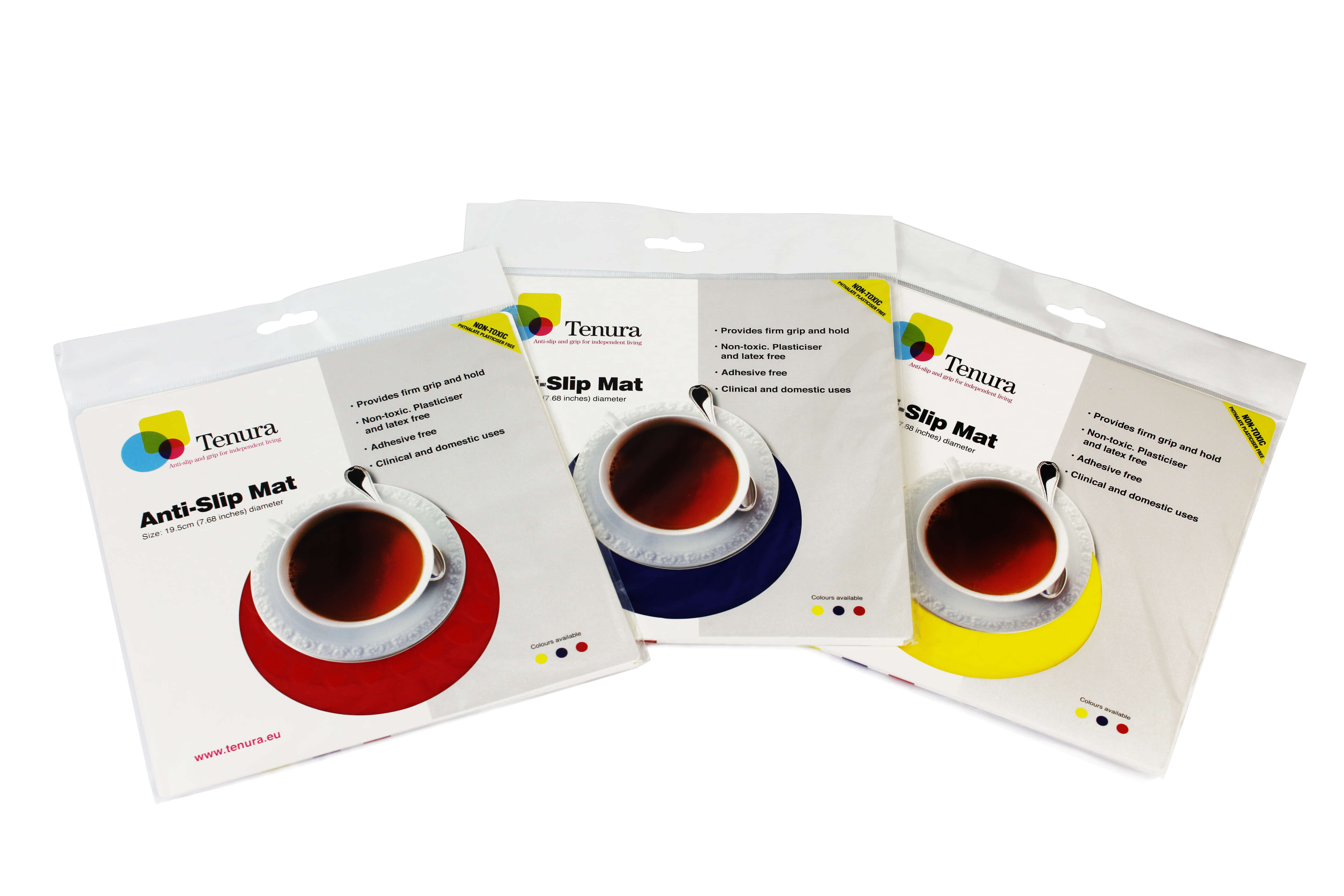
- Antimicrobial Aids: Products designed with hygiene in mind, essential for both home and care environments.
Our team will demonstrate how these products can make a real difference in everyday tasks and answer any questions you might have.
Exclusive Expo Offers
We love rewarding our customers, and Rehacare is the perfect place to do so! Be sure to visit us for exclusive expo-only discounts and special offers on our products. Whether new to Tenura or a long-time user, this is an excellent opportunity to stock up on essentials at unbeatable prices.
Meet the Team
One of the highlights of attending Rehacare is meeting our customers face-to-face. Our friendly team will be there to discuss how our products can support your specific needs or those of your clients or loved ones. We're excited to hear your feedback, which will help us continue to innovate and improve our product range.
Live Demonstrations and Interactive Experiences
Seeing is believing! We will be hosting live demonstrations of our products throughout the event. These hands-on sessions will allow you to experience firsthand how our daily living aids can enhance safety, comfort, and independence in various settings. Plus, we'll have interactive displays where you can test our products in real-life scenarios.
Discover New Innovations
At Tenura, we're always looking ahead, and Rehacare 2024 is the perfect platform to showcase some of our latest innovations. Be among the first to discover new products designed further to enhance the ease and joy of daily living. Our R&D team has been hard at work, and we can't wait to share our latest developments with you.
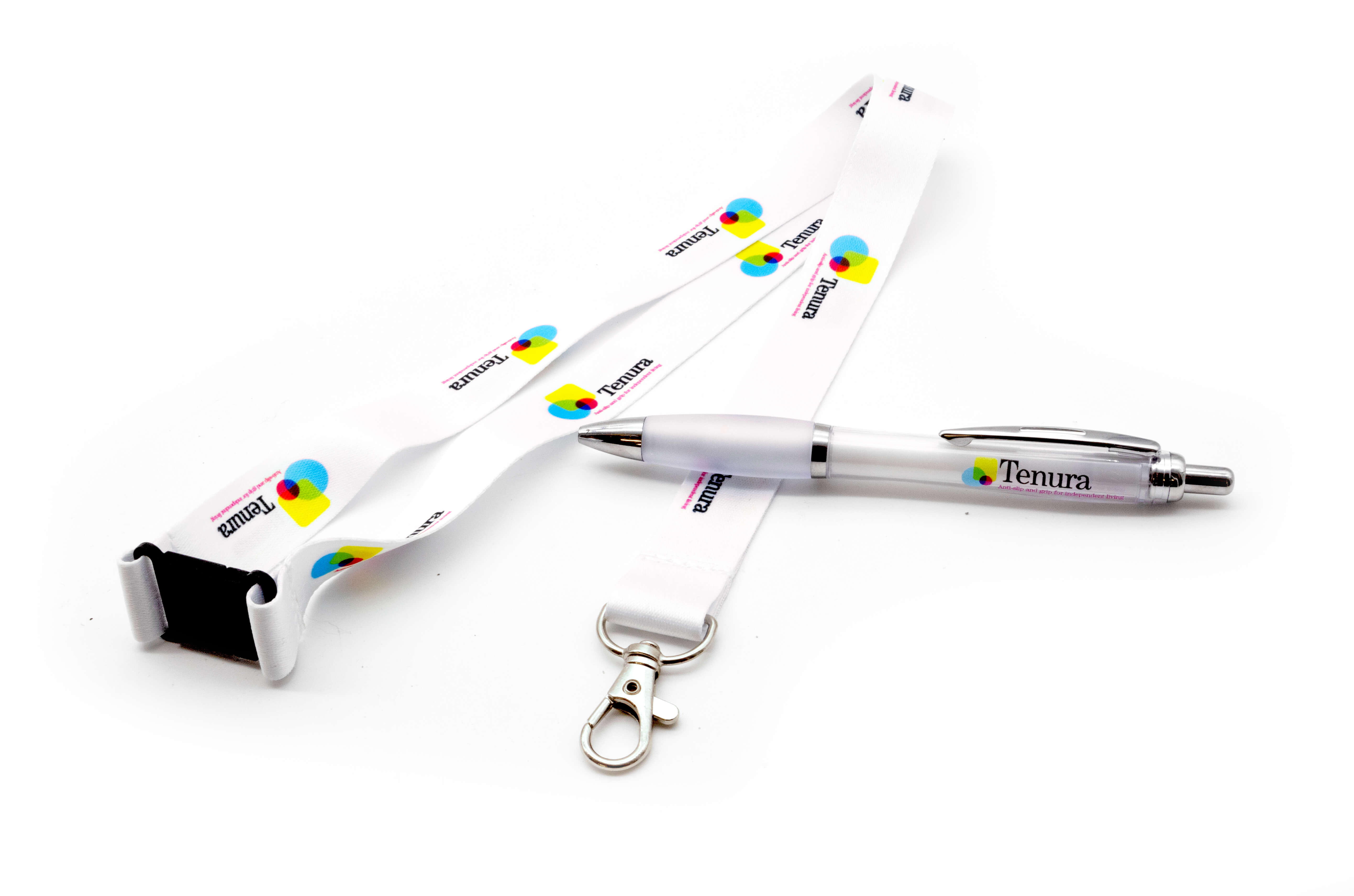 Grab Some Tenura Merchandise
Grab Some Tenura Merchandise
As a token of our appreciation, we'll give away a range of Tenura-branded merchandise at our stand. Stop by to pick up practical and fun items like pens, lanyards, and other branded goodies. These are perfect for remembering your visit to our stand and keeping Tenura in mind in your daily activities. We love to see our brand in your hands, and these items are our way of saying thank you for your support!
Why We're Excited to See You at Rehacare 2024
Rehacare is more than just an expo—it gathers like-minded individuals and organisations dedicated to making the world more accessible and inclusive. For us at Tenura, this event is a chance to connect with people who share our passion for improving the quality of life for those needing daily living aids.
We're excited to exchange ideas, learn from others, and donate to the community of professionals, caregivers, and consumers who attend Rehacare each year. Your insights and experiences are invaluable to us, and we look forward to meaningful conversations that will help us serve you better.
See You in Düsseldorf at Booth G35/6, Hall 5!
Mark your calendars and plan to visit the Tenura stand at Rehacare 2024. Whether you're a healthcare professional, caregiver, or someone looking for solutions to enhance daily living, we're eager to meet you and show you how Tenura can make a difference in your life.
Take advantage of this opportunity to explore, learn, and connect with the best in the industry. We can't wait to see you there!
Regulatory Updates and Professional Standards
In the ever-evolving landscape of health and therapy, keeping up with the latest regulations, standards, and best practices is crucial for professionals committed to providing the highest level of care. This is particularly true when it comes to the use of disability aids. In this blog, we'll explore some recent regulatory updates, emerging professional standards, and best practices in the industry that you need to know.
The Importance of Staying Updated
Regulatory bodies continuously update their guidelines to ensure that healthcare products, including disability aids, meet the highest safety and efficacy standards. For professionals in the health and therapy sectors, staying informed about these changes. Compliance ensures that your products and services are safe, reliable, and practical, crucial for patient well-being and trust.
Recent Regulatory Updates
Post-Brexit CE Marking Adjustments
The UK's departure from the EU has led to significant changes in the regulatory landscape, particularly concerning CE marking. Now, disability aids in the UK require the UKCA marking (UK Conformity Assessed) to be sold legally. This shift necessitates that manufacturers and distributors of disability aids ensure their products comply with the new UK standards. Professionals need to verify that the aids they recommend or provide are properly certified.
 ISO Standards for Assistive Products
ISO Standards for Assistive Products
The International Organization for Standardization (ISO) periodically revises its standards for assistive products, ensuring they meet the latest technological advancements and safety requirements. The ISO 9999 classification, for example, is regularly updated to include new categories of assistive devices and refine existing classifications. Staying informed about these changes can help professionals recommend the most current and effective products to their clients.
Health and Care Professions Council (HCPC) Guidelines
The HCPC, which regulates health and care professionals in the UK, has updated its guidelines to emphasise the importance of continuous professional development in line with new standards and practices. For those specialising in occupational therapy, physiotherapy, or any field involving disability aids, adhering to these guidelines ensures that your practice remains aligned with the latest professional standards.
Emerging Best Practices in Disability Aids
Emphasising Individualised Care
The trend towards personalised medicine has reached the realm of disability aids, with a growing emphasis on tailoring products to individual needs. This approach improves patient outcomes and aligns with regulatory expectations for patient-centred care.
Sustainable and Ethical Practices
Sustainability is key in manufacturing and using disability aids. Professionals should be aware of products made from eco-friendly materials and companies that prioritise ethical manufacturing practices. Not only does this align with broader societal goals, but it also resonates with increasing clients who are conscious of their environmental footprint.
Integration of Smart Technology
Integrating intelligent technology into disability aids is an exciting development, offering enhanced functionality and greater user independence. Professionals should familiarise themselves with the latest intelligent aids, from sensors that monitor usage patterns to apps that allow for remote adjustments, ensuring they can have the familiar solutions for their clients.
Keeping up with regulatory updates and professional standards is essential for any health or therapy professional who works with disability aids. By staying informed, you not only ensure compliance but also enhance the quality of care you provide to your clients. The landscape is constantly changing, but with a commitment to learning and adaptation, you can remain at the forefront of your field, providing the best possible support to those who rely on your expertise.
The Paralympics: Inspiring Resilience and Inclusivity for All
The Paralympics is more than just a sporting event; it is a powerful celebration of human spirit, resilience, and the pursuit of excellence. Established to provide athletes with disabilities the opportunity to showcase your abilities and compete at the highest level, the Paralympic Games have developed significantly since their inception, breaking barriers and challenging perceptions about disability.
When Did The Paralympics Start?
The roots of the Paralympics can be traced back to the Stoke Mandeville Games, initiated in 1948 by Dr. Ludwig Guttmann as a way to aid the rehabilitation of World War II veterans. This innovative concept quickly gained momentum, leading to the first official Paralympic Games held in Rome in the 60's, featuring 400 athletes from 23 countries. Since then, the event has grown exponentially, showcasing thousands of athletes from around the globe and an increasing number of sports, proving that disability is no barrier to achievement.
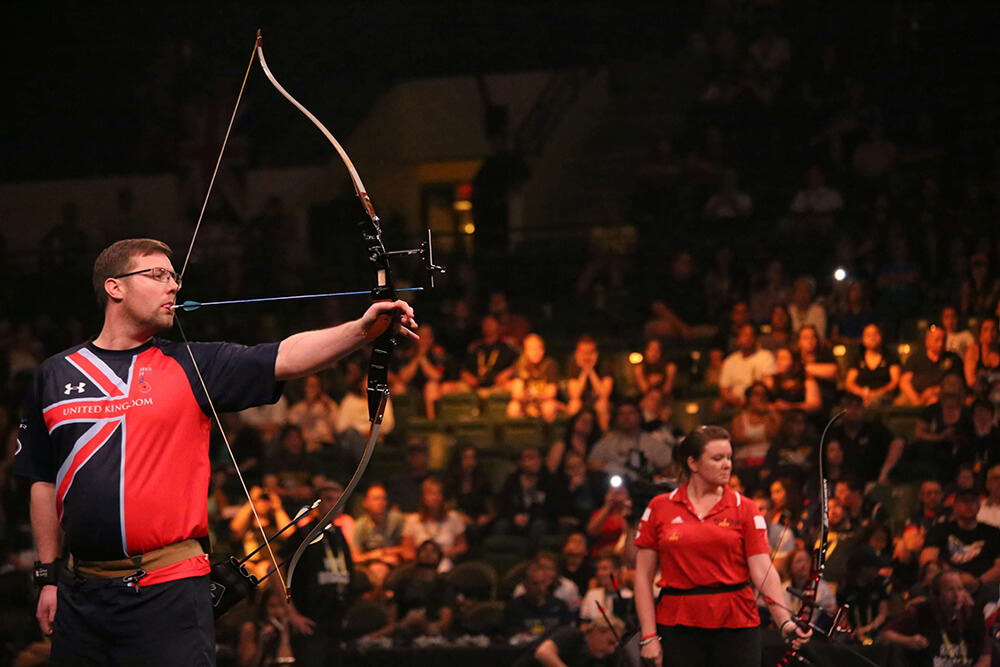 The Spirit of Competition
The Spirit of Competition
The Paralympic Games feature a diverse array of sports, each adapted to ensure fair competition among athletes with varying disabilities. From wheelchair basketball and para-swimming to visually impaired athletics and hand-cycling, the games showcase incredible talent and dedication. Each athlete has a unique story, and their journeys to the Paralympics often involve overcoming significant physical and societal challenges.
This competitive spirit not only highlights the athleticism of the participants but also inspires millions. The sight of athletes pushing their limits against all odds exemplifies the indomitable human spirit, encouraging others to pursue their dreams regardless of their obstacles.
Inspiring Stories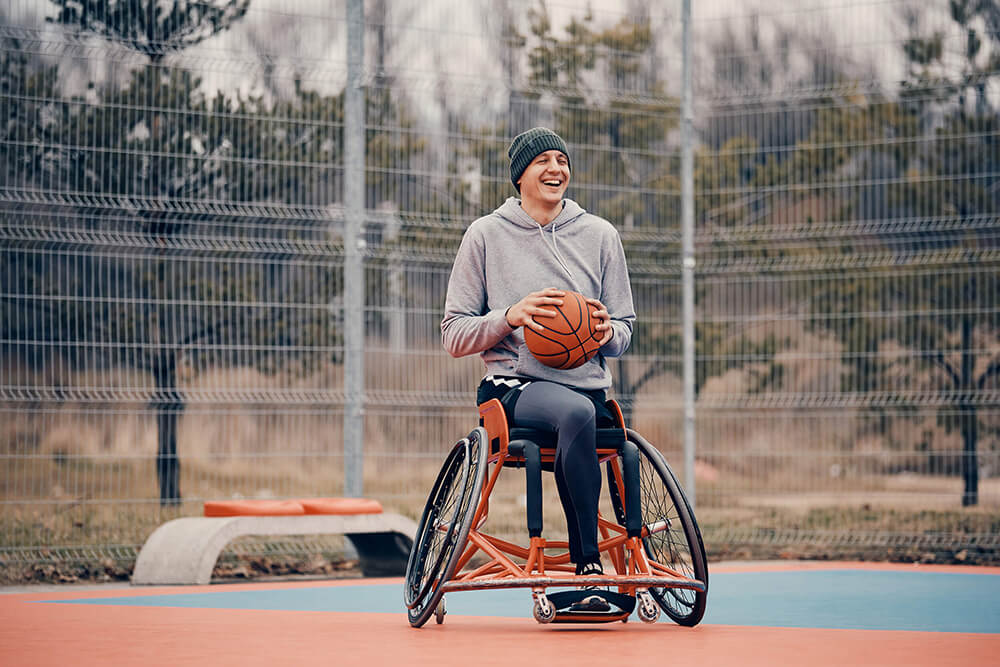
Among the many athletes who inspire us, consider Tatyana McFadden, a Paralympic champion in wheelchair racing who has won numerous gold medals across multiple games. Her journey from a childhood spent in an orphanage in Russia to becoming a world-class athlete is a testament to perseverance and determination. Each Paralympic athlete has a story that motivates and uplifts, demonstrating that challenges can be transformed into triumphs.
A Universal Source of Inspiration
The Paralympics serve as a profound source of inspiration not only for individuals with disabilities but for everyone. The athletes' resilience, dedication, and passion teach invaluable lessons about overcoming adversity and striving for excellence.
Witnessing these competitors push beyond their limits can motivate us to confront our challenges with renewed determination. Their stories remind us that conventional standards do not solely define success, which is often found in the courage to rise after a fall, persist in the face of obstacles, and pursue one's passions unapologetically.
This powerful message resonates with people of all backgrounds, encouraging a mindset of growth and perseverance. It reminds us that every individual has the potential to achieve greatness, regardless of their circumstances. By embracing the lessons learned from the Paralympics, we can adopt a culture of resilience and inclusivity in our own lives.
Impact on Society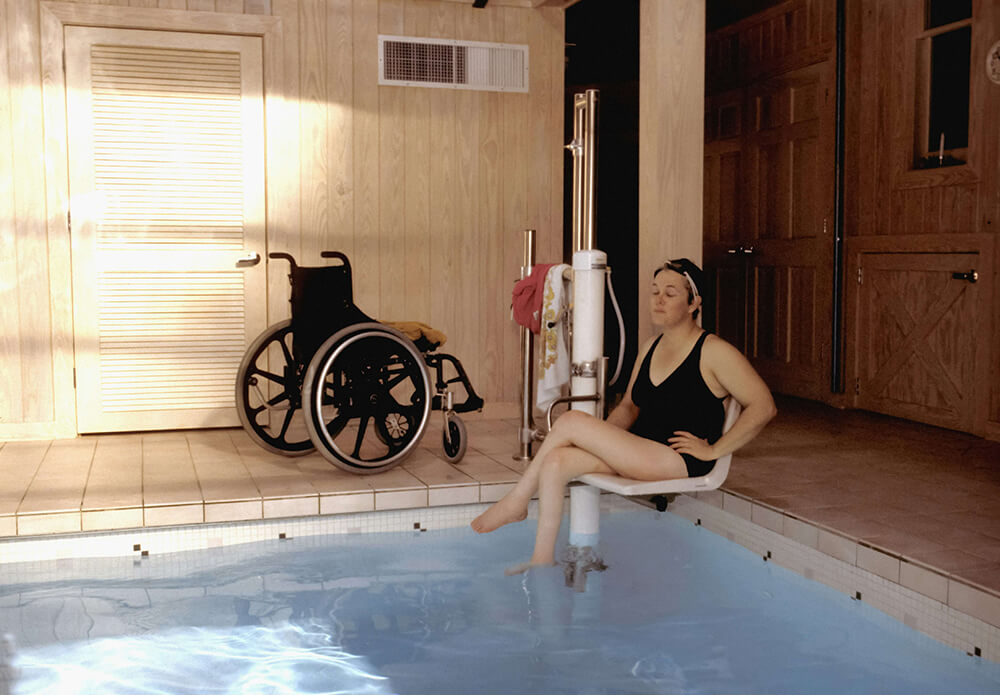
The Paralympics also play a crucial role in promoting inclusivity and awareness about disability rights. These athletes, along with millions around the world, face challenges every day, from physical barriers to societal misconceptions. The visibility and achievements of Paralympic athletes highlight the importance of creating a world that is accessible and supportive for everyone.
As the world tunes in to witness extraordinary feats of athleticism, it's essential to recognize the broader impact of the Paralympics. This special event serves as a reminder that everyone deserves an opportunity to compete, thrive, and be celebrated for their abilities. We hope to see continued progress toward a more inclusive and accessible world where individuals of all abilities can achieve their dreams without barriers.
 Tenura's Role in Empowerment
Tenura's Role in Empowerment
At Tenura, we believe in empowering individuals with disabilities, enabling them to live independently and engage in various activities, including sports. Our range of daily living aids, from grip aids to non-slip mats, are designed to enhance safety and independence, ensuring everyone can enjoy their passions. These products not only assist in daily tasks but also promote a sense of autonomy, enabling individuals to pursue their interests without barriers.
The Paralympics stand as a beacon of hope, inspiring athletes and spectators alike to embrace diversity and inclusivity. Celebrating these remarkable athletes, let us reflect on how we can contribute to a more inclusive society.
The Role of Technology in Maintaining Social Connections for People with Disabilities in a Post-Lockdown World
As heavily as COVID impacted the entire world, people with disabilities faced specific challenges during and beyond lockdown owing to three overriding factors: the increased risk of poor outcomes from this disease, reduced access to routine health care and rehabilitation, and the negative social impact caused by efforts to reduce contagion. Although lockdown is a thing of the past, the social effects of the pandemic are far from over. As reported by the BBC, COVID has resulted in the rise of remote work, with many companies resorting to a “hybrid” work model that has actually proven to be a great leveller in terms of equality, diversity, and inclusion. However, telecommuting also has its downside—greater isolation ad fewer opportunities for in-person interaction. How is technology working to bridge the divide and unite disabled people with their colleagues, friends, and family in the age of the “new normal?”

Entering Virtual and Real Worlds
Mixed reality headsets are one of the buzzwords in the tech sector. Anyone who enjoys gaming, working on a large “monitor” or interacting with others via video conference call is keen to get their hands on Apple’s new Vision Pro mixed reality headset. You simply put this headset on and start “working” on an enormous virtual screen whose size you can manipulate (imagine enjoying an online game with others on a virtual screen that is as large as your wall). You don’t need a mouse; you simply swipe and click items on the screen with your fingers. You can use all your usual apps, look at photos and video recordings, or work as you would on a typical monitor. You can also use the headset to make spatial FaceTime calls with scanned avatars that use AI to mimic the appearance and body language of the person wearing the headset. You can see all your contacts in “larger-than-life” size as they talk, and share documents and information as you normally would when working with a normal computer. It’s easy to see how this technology can help disabled people feel much more connected to their colleagues and friends, until they can see them in person, of course!
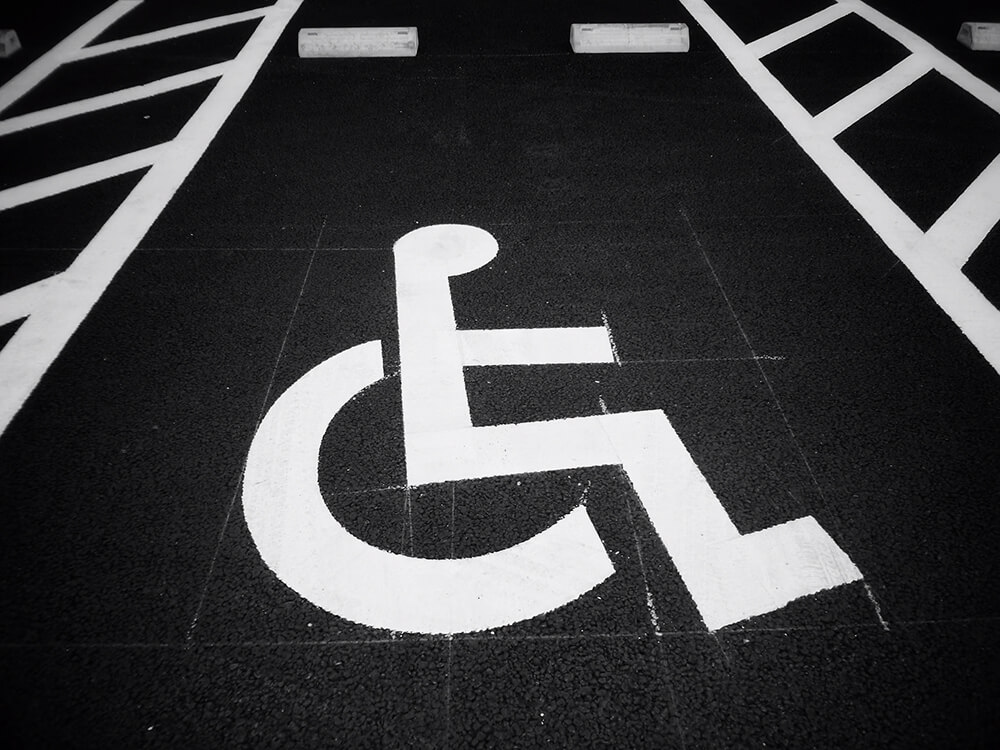 Reinventing the Wheelchair
Reinventing the Wheelchair
A person’s ability to move from one area to another play a crucial role in encouraging social interaction. Innovative wheelchair technology is improving mobility, safety, and accessibility, making it easier for wheelchair users to attend social events. Accessibility legislation has done plenty to boost accessible housing and rental policies. For instance, the law in most countries deems it necessary for landlords to accommodate disabled tenants via wheelchair access ramps, the installation of railings, adapted shouting and bathing facilities, and similar. However, it also helps for wheelchairs themselves to contain cutting-edge technologies that make movement easier. Currently, a few innovations that are making it easier to get around include self-driving, smart wheelchairs with sensors that use ultrasonics, radars, and cameras to perform tasks like slowing chairs down to prevent accidents.
Glasses That Speak
XRAI Glass is an innovative pair of glasses that allows deaf people to read real-time captions when talking to others. Instead of relying on lip-reading, deaf people can see that the other person is saying through the lenses. The glasses go a step further—they can even translate languages, vocal tones, accents, and pitches. They make an ideal tool for social interaction, work, education, and events. They come with a Bluetooth mic, which means that they can “see” conversations from a distance. Jodie Ounsley, a professional rugby player, has tried the glasses and stated that although she embraces her deafness with positivity, her disability “is a really isolating place at times. You miss out on a lot, and it’s a mental journey trying to lip-read.” She has stated that the glasses makes social interaction considerably easier. The smart glasses work with the XRAI app, which turns speech into subtitles in real time.
Although lockdown has long been over, the effects of COVID have continued into current times. Many disabled people are pleased to be working from home owing to the ease of this new arrangement, but remote work can be isolating. Technological innovations are constantly bridging the divide between remote and in-person work modes. Apple’s Vision Pro, smart wheelchairs, and XRAI Glass are just three of many technologies that are uniting disabled people with other people with and without disabilities.
Celebrating Disability Pride Month: Embracing Diversity, Empowering Lives
Disability Pride Month is an important time of the year dedicated to honouring the strength, resilience, and accomplishments of individuals with disabilities. It serves as a platform for raising awareness, promoting inclusivity, and fostering a sense of pride within the disability community. In this blog, we will delve into the significance of Disability Pride Month, explore the revised meaning behind each colour of the flag, discuss the importance of the grey background, and shed light on the origins of this empowering celebration.
The Colours of the Disability Pride Flag: The Disability Pride Flag consists of vibrant colours, each representing a meaningful aspect of the disability community. Let's explore the revised interpretation of the colours:
Green: The colour green now represents sensory disabilities, encompassing impairments related to sight, hearing, and other sensory functions. It acknowledges the diversity of sensory experiences within the disability community.
Blue: The colour blue now symbolises emotional and psychiatric disabilities, including mental health conditions and challenges related to emotional well-being. It highlights the importance of addressing mental health within the broader context of disability pride.
White: The colour white now stands for non-visible and undiagnosed disabilities. It represents conditions that may not be immediately apparent or easily understood, emphasising the significance of recognising and supporting individuals with these hidden disabilities.
Gold: The colour gold now represents neurodiversity, which encompasses conditions such as autism, ADHD, and other neurological differences. It celebrates the unique strengths and perspectives of individuals with neurodivergent identities.
Red: The colour red continues to symbolise physical disabilities, including mobility impairments and other conditions that affect physical function. It serves as a reminder of the challenges faced by individuals with visible disabilities and the importance of accessibility and inclusion.
The Grey Background: The grey background of the Disability Pride Flag holds significance within the revised interpretation. It represents the experiences of individuals who have passed away due to disabilities, as well as those whose disabilities may not be readily visible or diagnosed. It serves as a reminder to honour the contributions, struggles, and triumphs of all individuals with disabilities, irrespective of their visibility.
Origins and Significance of Disability Pride Month: Disability Pride Month finds its roots in the disability rights movement, which advocates for equal rights, access, and inclusion for individuals with disabilities. It was first established to coincide with the anniversary of the Americans with Disabilities Act in the United States. This legislation, signed into law on July 26, 1990, prohibits discrimination based on disability and has played a pivotal role in advancing disability rights globally.
Disability Pride Month is essential because it celebrates the achievements and strengths of individuals with disabilities while raising awareness about the challenges they face. It challenges societal stigmas, stereotypes, and ableism, fostering a sense of pride, self-acceptance, and empowerment within the disability community. The month-long celebration provides a platform for education, advocacy, and the promotion of accessibility, encouraging society to recognise and value the talents, contributions, and inherent worth of individuals with disabilities.
As Disability Pride Month unfolds, we are reminded of the extraordinary resilience, diversity, and contributions of individuals with disabilities. The Disability Pride Flag, with its revised colours and grey background, represents the spirit of this celebration, a celebration of strength, growth, passion, and joy. By embracing Disability Pride Month, we support the ongoing journey towards equality, accessibility, and inclusion for all. Let us join hands in celebrating and promoting the rights, accomplishments, and remarkable potential of individuals with disabilities.

Tenura Christmas and New Year Opening Times
We have had such an exciting year here at Tenura. The world is getting on its feet again, face-to-face contact is back for good, and boy did we love seeing our customer's at the various exhibitions we have attended this year.
You may have seen us at the FIME Show in Miami or Rehacare in Germany. We had great fun, and it was nice to meet as many of you as we did. Next year we hope to be in attendance once again.
Other ideas we have set out for ourselves in the coming year include researching and reaching out to customers to see the innovative ways they are using Tenura daily living aids, so we can help educate others.

We want to keep bringing you the latest in healthcare and disability news via our blog as well as exclusive discounts for the Tenura website. You can use these discounts to get your Tenura daily living aids at an even better price than they are already listed!
You can explore the Tenura product range via our website/
The Christmas and New Year opening times are as follows:
- 26th December - Closed
- 27th December – Closed
- 28th December – Open, limited services
- 29th December – Open, limited services
- 30th December – Closed
- 31st December – Closed
- 1st January - Closed
- 2nd January - Closed
- 3rd January – Business resumes as normal
Thanks for taking the time to read the last 2022 blog. We hope you'll continue showing your support in 2023! Have a great Christmas and a Happy New Year!
International Day of Persons with Disabilities 2021 & Discount Code
 1992 is when the International Day of Persons with Disabilities was announced and held every year after on the 3rd of December. United Nations lead this observance day and hope those contributing do so in celebration through learning and action. In this blog, we will discuss ways to join in the celebrations in a COVID friendly way.
1992 is when the International Day of Persons with Disabilities was announced and held every year after on the 3rd of December. United Nations lead this observance day and hope those contributing do so in celebration through learning and action. In this blog, we will discuss ways to join in the celebrations in a COVID friendly way.
A Reflection on the International Day of Persons with Disabilities 2020
Last years theme was an important one and something many of us hadn't cast much thought upon, "Not All Disabilities Are Visible". The theme made people worldwide re-evaluate the stereotypes that stem from the term disabled. Thanks to this campaign, autism, hearing impairments or conditions that affect the brain, neurological system, and mental health became widely recognised in terms of disability.
What is the International Day of Persons with Disabilities Theme 2021
We are happy the Coronavirus pandemic is levelling out to a form of normalcy. With this year's theme at the forefront of our minds, 'Fighting for rights in the post-COVID era." We can take a deep look into supporting disabled people following the global pandemic.
How Can We Help the Disabled In This Post COVID World
To best understand how we can support those with disabilities, we have taken a look at the Government's statistics regarding the disabled and how they feel post-COVID.
Mental Health and the Disabled Post COVID
 People with disabilities have stated that their mental health has been negatively affected by Coronavirus, and they are having feelings of anxiety, boredom, stress and loneliness. Almost half of the disabled population reported feeling lonely as an effect of the pandemic, which is significant.
People with disabilities have stated that their mental health has been negatively affected by Coronavirus, and they are having feelings of anxiety, boredom, stress and loneliness. Almost half of the disabled population reported feeling lonely as an effect of the pandemic, which is significant.
So how can we help? A great way to combat many of the above feelings is by talking about them to others. Some great listeners and advice-givers include family members, friends or professionals. Verbalising problems decreases stress levels and opens up the room for conversation and discussion, relieving anxiety and stress.
24% of UK disabled people stated they hadn't spoken to anyone about their worries.
Healthcare and the Disabled Post COVID
 40% of disabled people have stated that access to healthcare for non-Coronavirus related issues has been affected. It's an ambiguous statement, covering many areas from travel to treatment by healthcare professions at hospitals and GP practices.
40% of disabled people have stated that access to healthcare for non-Coronavirus related issues has been affected. It's an ambiguous statement, covering many areas from travel to treatment by healthcare professions at hospitals and GP practices.
So how can we help? If you are a healthcare professional, make sure you positively impact any patient and provide the correct information to allow the individual to seek proper treatment. For anyone who has a disabled relative or friend, make sure they have access to transport and can make their appointments. There are online portals to order online prescriptions, so helping them set up an account can give the disabled person a means of acquiring medication without mobility barriers.
Shopping and the Disabled Post COVID
 It is our fundamental human right to have access to water, food and other essentials, and this is an area some people with disabilities are finding tricky. 27% of disabled people have stated that having access to groceries, medications, and other essentials have been affected by the Coronavirus.
It is our fundamental human right to have access to water, food and other essentials, and this is an area some people with disabilities are finding tricky. 27% of disabled people have stated that having access to groceries, medications, and other essentials have been affected by the Coronavirus.
So how can we help? When shopping and being generally out and about, be mindful of others, keep your 2m distance to make others feel safe in the store. If you have a disabled friend or relative, ask if they need any assistance. If they do not feel comfortable leaving the house, create an online groceries order or help them order goods online. Assess where the disabled person needs additional help and find ways to make this practical and safe.
Coronavirus has affected us all but has taken a toll on some of society more so than others. We need to come together as we did for the NHS and make sure that we as a community are inclusive and accessible to all people no matter their circumstances.
Many products on the market can improve the lives of those with disabilities. At Tenura, we have a range of disability aids that can help in all areas of life. We are offering you a 10% discount to support the International Day of Persons with Disabilities 2021.
You can redeem the code at checkout, receiving 10% off Tenura products such as:
 Tenura bottle and jar openers, these nifty gadgets are grip-enhancing and make removing lids from containers easier and more comfortable. They are perfect for anyone with weak grip strength.
Tenura bottle and jar openers, these nifty gadgets are grip-enhancing and make removing lids from containers easier and more comfortable. They are perfect for anyone with weak grip strength.- Tenura non-slip bath stickers once applied to your bath or shower. They add a non-slip layer that reduces the risk of slips and falls in a frequently wet and notoriously slippy area of the home. These bath stickers are the solution for people needing mobility assistance in the bathroom.
- Tenura table mats work well as placemats or on dinner trays to stop plates from sliding. For people with Parkinson's, hand tremors can make carrying a tray tricky but making sure the objects on the tray won't slide can be helpful.
- Tenura floor mats, you can place them around the home, anywhere you need to add non-slip properties, for example, near your couch to give you a better foothold when standing or sitting down, you can use them in tandem with mobility aids such as walking sticks or wheelchairs.
Use code IDOPWD10 for 10% off the whole Tenura range (valid until 01/12/21).

Purple Tuesday 2021 & 10% Discount on Tenura Disability Aids
Some companies are taking up the Purple Tuesday initiative to make their company values align with the disabled community. This blog will outline how you can get involved and what Tenura is doing to ensure we provide inclusive customer service.
So, What’s Purple Tuesday All About
 Fourteen million people in the UK live with a disability, equating to roughly 22% of the population. With that many people classified as having some form of disability, you’d think we would have better infrastructure as a nation to cope with the challenges the disabled community face.
Fourteen million people in the UK live with a disability, equating to roughly 22% of the population. With that many people classified as having some form of disability, you’d think we would have better infrastructure as a nation to cope with the challenges the disabled community face.
We are excited to be taking part this year and joining in with over 5,000 organisations, pledging towards the Purple Tuesday campaign. Each organisation reflects inward to evaluate their customer service to make it a better experience for the disabled.
How Technology and Companies can Help
 As technology and our understanding of disabilities continues to grow, the future for inclusivity is bright, which is precisely what Purple Tuesday is all about.
As technology and our understanding of disabilities continues to grow, the future for inclusivity is bright, which is precisely what Purple Tuesday is all about.
The technology push towards a more accessible customer experience is essential. It can start with ideas such as website accessibility, voice recognition devices, and providing different channels disabled customers can access your services. Companies coming up with technology advancements in the name of disability inclusion are fantastic, as all these changes can vastly improve a disabled person’s experience with your company.
 Companies can make changes offline too, which includes; training staff helping them to communicate with disabled people, installing wheelchair ramps, and creating clear signage.
Companies can make changes offline too, which includes; training staff helping them to communicate with disabled people, installing wheelchair ramps, and creating clear signage.
If you are a company that wants to join in on the Purple Tuesday campaign, you can via their website, you need to register, then pledge a commitment that will benefit disabled people using your company. Put your ideas into action and deliver on your goals, so you can celebrate your achievements when it comes to 2nd November.
How You Can Help
Those of you speaking out on social media, informing others about businesses stepping in the right direction and making those positive-discrimination steps is impactful. Helping companies recognise ways they can improve accessibility helps create the market pull, pulling companies in line with the values of the disabled community and beyond.
You can use the following hashtags to join in on the conversation:
- #PT2021
- #PurpleTuesday2021
- #DisabilityInclusion
- #AccessibilityForAll
Tenura’s Pledge to Purple Tuesday
We aim to provide a better user experience for disabled people using the Tenura website. We want to be inclusive, and with products aimed at those who are disabled, it seems like a step in the right direction.
 One step we have taken to reach our goal of a more inclusive website is a website audit. The website audit picks up areas where we can make our website accessible. We will be implementing these ideas in the coming years, as we have big plans, ranging from image naming formulas that aid those using screen readers to releasing a guide on website accessibility in the form of a blog. We started our strategy last year and have been making small manageable steps towards our goal ever since. As I am sure you appreciate, these adaptations take both time and money.
One step we have taken to reach our goal of a more inclusive website is a website audit. The website audit picks up areas where we can make our website accessible. We will be implementing these ideas in the coming years, as we have big plans, ranging from image naming formulas that aid those using screen readers to releasing a guide on website accessibility in the form of a blog. We started our strategy last year and have been making small manageable steps towards our goal ever since. As I am sure you appreciate, these adaptations take both time and money.
To further help us towards our website accessibility goal, please send an email informing us of any website accessibility techniques you feel we could implement.

We want to show our appreciation to the community pledging towards a better future by offering you a 10% discount on all Tenura products via our website. Use the discount code PURPLETUES10 at checkout to redeem.
This promotion is running from 26/10/21 to 16/11/21.
New Tenura Video: Children's Assistive Devices
Tenura creates and manufactures helpful assistive devices for children to make life a little simpler. Tenura's ergonomically designed children's products are beneficial during play and mealtimes. The three gadgets on show in the video are Tenura children's cutlery grips, CupCaps and non-slip mats. You can use these products to promote the development of fine motor skills like handwriting.
Skills such as handwriting and properly using cutlery, may not seem necessary. However, they are the foundation to key life skills, and by using and practising with cutlery, the child's brain develops fine motor skills.
Fine motor skills are the movements we make using our smaller muscles for intricate tasks, a task in our daily lives that requires such skill is fastening the buttons on your top, tying shoelaces, writing and correctly using cutlery.
Children who do not practice fine motor skills often have low self-esteem because they are unable to complete the same tasks as their peers. So, let's make sure your child is happy and prepared for life by encouraging their development using Tenura children's products.
Explore the benefits of our Children's Range:
Children's Cutlery Grips
Children can struggle to hold items with thin handles as it requires fine motor skills and coordination. Typically, children can feed themselves by age seven, having acquired these skills through years of practice. You may not give it much thought but grasping smaller objects requires a more extensive range of movement, which is why some children struggle to hold cutlery. To help your child, slide Tenura children's cutlery grips onto handles, enlarging their surface area and making them more comfortable to hold. Some great examples include:
- Toothbrushes
- Paintbrushes
- Pens and Pencils
- Hairbrushes
Children's cutlery grips come in a pack of two and are available in three colours, red, blue and grey.
For larger hands, we have ergonomically designed adult cutlery grips.

Children's Table Mats
Arts and crafts are a treasured pastime for all children, often consisting of paint, pens and glue, all of which can leave horrifying marks on your furniture. However, by using a Tenura children's mat as a barrier between the table and their art, you can protect your surfaces and keep the mess contained. Tenura mats are easy to wash/wipe down and are dishwasher safe.
The mat's silicone non-slip properties prevent spillages, as paint pots and other mess-making supplies are securely held in place by the children's mat.
There are two funky shaped children's mats available, an orange cat and a green frog.
Tenura CupCaps – Silicone Drink Lids
We are all prone to knocking over drinks, especially children, whose bodies are growing and don't have the best spatial awareness. With that in mind, CupCaps can be an ideal help. CupCaps are stretchy silicone drink lids that create a seal over the top of containers to keep the liquid inside and avoid spillages. Stretch the drinks cap over your cup, insert a straw through the eyelet and away you go, mess-free.
Benefits of Tenura Children's Assistive Devices
Tenura’s three assistive devices for children are made from silicone, which means that have fantastic qualities, which include:
- Non-Toxic
- An essential feature as children tend to put things in their mouth, so the last thing you want is the object to be toxic
- Antimicrobial
- Bacteria can't harbour on the mat's surface. Your child has a developing immune system, so it is crucial to reduce the risk of infection/illness
- Latex-Free
- Your child could be allergic to latex, and you may not be aware
- Easy to hand wash and dishwasher safe
- Tenura children's products can withstand temperatures up to 250°C
If you would like to contact us regarding the Tenura children's range or our other products, please fill out the contact form.

Developing Fine Motor Skills in Children
Performing actions with increased frequency positively affects how smooth, fast and accurate the motion can be completed in the future, becoming ingrained in 'muscle memory'.
As for a child learning how to write, years of practice go by to develop the skill. If you have ever tried to practice the art form, calligraphy, you will realise what it was like when first beginning writing. You have to train your hand to complete the same motion each time ensuring every letter is identical in style. You have to train your body to make those exact motions.
By repetitively completing actions, you also build up the strength in the muscles involved in that movement, especially supportive muscles required for fine motor skills. As these improvements continue, the brain takes note and sends out altered signals each time, which is, of course, why practice makes perfect.
To help develop this skill in your children, you should practice activities such as colouring/drawing, tracing, cutting, writing, playing with playdough and using cutlery when eating.
Subscribe to the blog to get more helpful information and save 10% on your next Tenura purchase!
If you would like any further information on the products showcased in this blog and video, check out their product pages: Children's Cutlery Grips | Children's Table Mats | CupCaps

